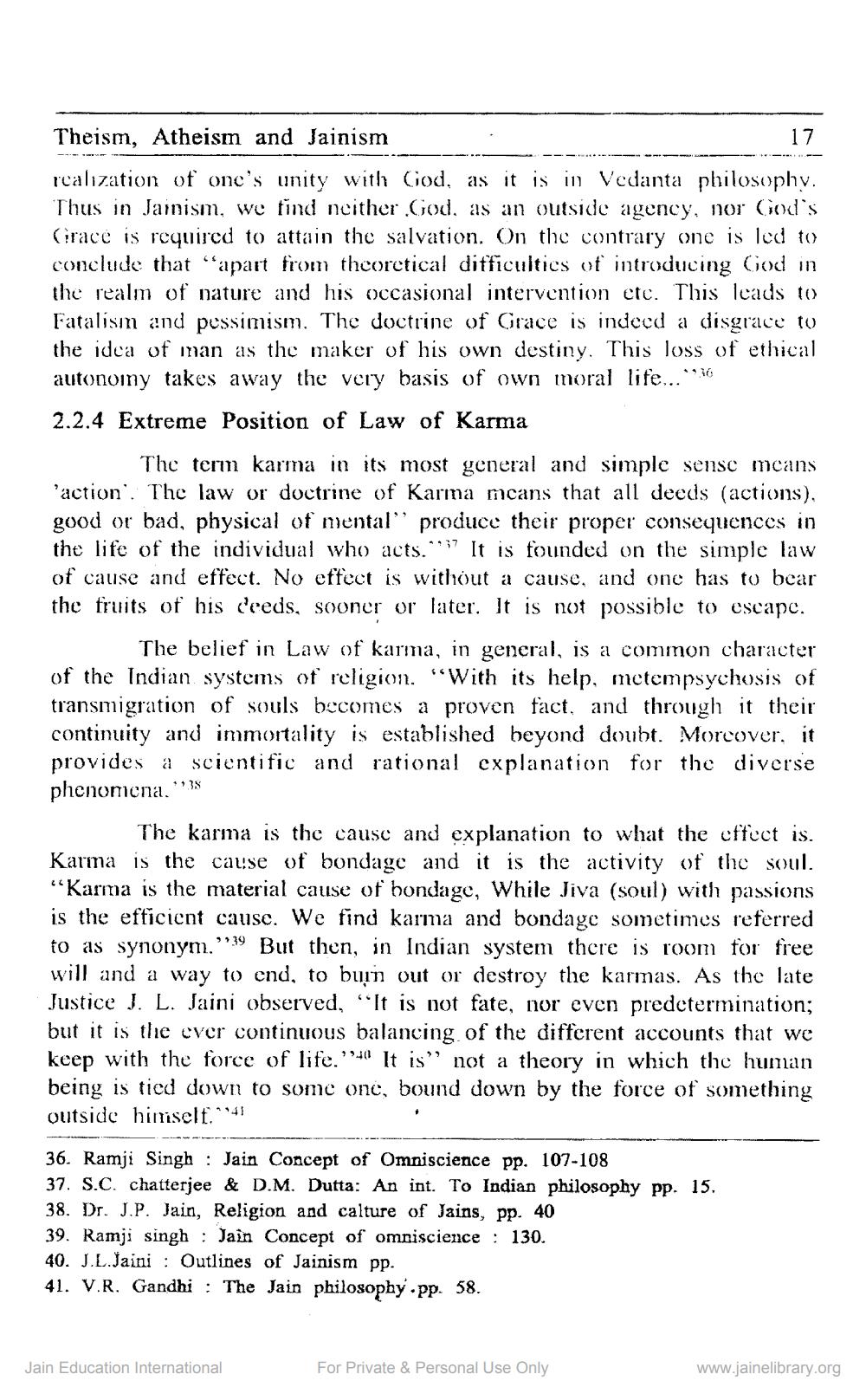________________
Theism, Atheism and Jainism
realization of one's unity with God, as it is in Vedanta philosophy. Thus in Jainism, we find neither God, as an outside agency, nor God's Grace is required to attain the salvation. On the contrary one is led to conclude that "apart from theoretical difficulties of introducing God in the realm of nature and his occasional intervention etc. This leads to Fatalism and pessimism. The doctrine of Grace is indeed a disgrace to the idea of man as the maker of his own destiny. This loss of ethical autonomy takes away the very basis of own moral life... 36
2.2.4 Extreme Position of Law of Karma
The term karma in its most general and simple sense means 'action'. The law or doctrine of Karma means that all deeds (actions). good or bad, physical of mental produce their proper consequences in the life of the individual who acts. It is founded on the simple law of cause and effect. No effect is without a cause, and one has to bear the fruits of his deeds, sooner or later. It is not possible to escape.
The belief in Law of karma, in general, is a common character of the Indian systems of religion. "With its help, metempsychosis of transmigration of souls becomes a proven fact, and through it their continuity and immortality is established beyond doubt. Moreover, it provides a scientific and rational explanation for the diverse phenomena. **38
+39
The karma is the cause and explanation to what the effect is. Karma is the cause of bondage and it is the activity of the soul. "Karma is the material cause of bondage, While Jiva (soul) with passions is the efficient cause. We find karma and bondage sometimes referred to as synonym. But then, in Indian system there is room for free will and a way to end, to burn out or destroy the karmas. As the late Justice J. L. Jaini observed, "It is not fate, nor even predetermination; but it is the ever continuous balancing of the different accounts that we keep with the force of life." It is not a theory in which the human being is tied down to some one, bound down by the force of something outside himself.41
36. Ramji Singh Jain Concept of Omniscience pp. 107-108
37. S.C. chatterjee & D.M. Dutta: An int. To Indian philosophy pp. 15.
38. Dr. J.P. Jain, Religion and calture of Jains, pp. 40
17
39. Ramji singh Jain Concept of omniscience: 130. 40. J.L.Jaini: Outlines of Jainism pp.
41. V.R. Gandhi The Jain philosophy.pp. 58.
Jain Education International
For Private & Personal Use Only
www.jainelibrary.org




